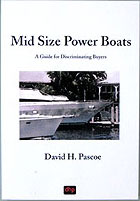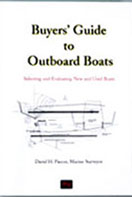Chapter 4
Excerpt
While this chapter addresses issues involving marine investigators in the United States, investigators working in other Western nations will find that their national laws are, if not alike, then effectively similar, particularly those of English speaking nations. Insurance contracts are also more alike than different throughout the world.
This is because marine insurance originated in England, spread to the U.S., and thence worldwide with only modifications rather than any major changes in principle taking place. In any event, readers from any nation will find that the U.S. legal rules outlined herein will provide a solid basis for ethical conduct just about anywhere. English, U.S., and Canadian law respecting Admiralty and insurance is remarkably similar.
The Federal courts have held, and repeatedly upheld, the precept that the intent of Article III, Section ii of the US Constitution was to establish a uniform set of rules and body of law governing conveyance over the navigable waters of the U.S.
At the time the Constitution was created, there was no such thing as pleasure craft or non commercial activities significantly involving navigable waters, so despite the fact that maritime activity was almost exclusively commercial activity, it later came to be recognized that other activities could and would infringe upon navigation. It is for this reason that the courts have been willing to extend Admiralty jurisdiction over just about anything that touches on navigation.
The problem that we have in this work is that the nature of our work can fall under the jurisdiction of any court; our work can be the subject of either general common law or Admiralty, and this includes issues involving marine insurance contracts.
And needless to say, the conclusions of a local or state court are apt to be quite different from those of a federal court functioning under Admiralty rules. However, where marine cases are initially filed is a matter of choice for the plaintiff, and one for the defendant as well since either has the right to claim maritime jurisdiction. If neither does, then the case will remain in the original lower court.
In this chapter we will consider the issues of marine insurance contracts and the laws that govern them, as well as the body of law that governs casualties and liability. These jurisdictions and bodies of law often overlap and come into conflict. Fortunately, that doesn't concern the investigator much since his role is not to sort it all out, but simply be conversant with how the various principles of law bear on our work.
(Additional spaces are added for easy screen reading.)
Table of Contents: Chapter Chapter 4
4. Marine Insurance and Issues of Law 75
The Role of the Marine Expert 76
Unfair Claims Practices Laws 78
Independent Adjuster 81
Obtaining an Adjuster's License 83
Advice to the Client 83
Reasonable Doubt 84Insurance Policies and Concepts 85
Principles of Insurance 85
All Risk Yacht Policy 86
Agreed Valuation 87
ACV Policies 88
Seaworthiness Warranty 88
Perils of the Sea 90
Weather 92
Negligence -vs- Gross Negligence 93
Sue and Labor Clause 95
Subrogation 95
Estoppel 95
The Prudent Uninsured 96
The Non Waiver Agreement 98
Cooperation 98
The Insured's Rights, Insurer's Rights 99
The Time Element 99Latent Defects 100
Historical Perspectives 101
Error in Design 101
Faulty Material 101
Premature Failure 102
What is Damage? 103
Machinery 105
Limitations on Claims 106Admiralty Law 106
Salvage 108
Refusal of Salvage Assistance 109
Abandonment 110
Salvage Fees -vs- Salvage Awards 111
Towing versus Salvage 112
Example 112
Hazards to Navigation 114
Recommending Salvors 114
Types of Salvage Contracts 115
Incompetent Salvors _ Surveyor as Salvage Master 116
Salvage Bidding 118
| Expand Business! |
|---|
| Marine
surveyors: Expand your marine business! Conducting marine investigations can help free you from the limitations of a seasonal business and expand your business opportunities and income. |
| Who Hires? |
| Who
hires marine investigators? In addition to insurance companies, specialist investigators merge their specialized pleasure craft knowledge with investigative abilities for a broad range of clientele. |
| Clientele |
| These
can range from boat owners with serious warranty claim disputes and
faulty repair issues to being hired by lawyers as investigators as
either fact witnesses or expert witnesses. Marine investigators often work for boat owners who are having trouble with insurance claim issues, assisting the boat owner obtain a proper claims settlement. |
by David H. Pascoe
Soft Cover
544 pages
Publisher: D. H. Pascoe & Co., Inc.
Published: 2004
Language: English
ISBN-10:0965649652
ISBN-13: 9780965649650
In Stock
HOME >
David Pascoe - Biography
David Pascoe is a second generation marine surveyor in his family who began his surveying career at age 16 as an apprentice in 1965 as the era of wooden boats was drawing to a close.
Certified by the National Association of Marine Surveyors in 1972, he has conducted over 5,000 pre purchase surveys in addition to having conducted hundreds of boating accident investigations, including fires, sinkings, hull failures and machinery failure analysis.
Over forty years of knowledge and experience are brought to bear in following books. David Pascoe is the author of:
- "Mid Size Power Boats" (2003)
- "Buyers’ Guide to Outboard Boats" (2002)
- "Surveying Fiberglass Power Boats" (2001, 2nd Edition - 2005)
- "Marine Investigations" (2004).
In addition to readers in the United States, boaters and boat industry professionals worldwide from over 70 countries have purchased David Pascoe's books, since introduction of his first book in 2001.
In 2012, David Pascoe has retired from marine surveying business at age 65.
On November 23rd, 2018, David Pascoe has passed away at age 71.





